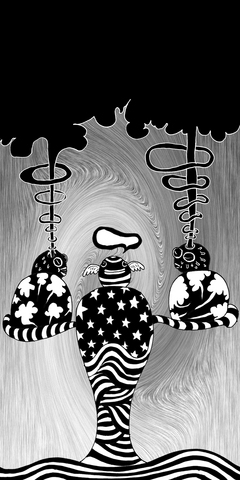President George W. Bush's abilities as an opening batsman may be tested when he visits Pakistan this week. US National Security Adviser Stephen Hadley said that when Bush attends a "cricket event" on Saturday in Islamabad, it is uncertain whether he plans to watch or play. "Who knows what he'll do?"
As Bush steps up to the crease, the official spin on his one-day visit, which follows a trip to India and precedes a stopover in Afghanistan, is that Washington has Pakistan's interests at heart.
The bilateral agenda includes counter-terrorism, the Kashmir dispute with India, and elections promised next year by Pakistani President Pervez Musharraf, who seized power in a 1999 coup.

But Bush, pointing to US help after last October's earthquake, is keen to show the common touch.
"This is a relationship that's much bigger than the `war on terror,'" he told Pakistani television at the weekend. Pakistanis should know "that the American people care about them."
This feeling is not reciprocated in some quarters. Much of the country is in uproar, ostensibly over the Danish cartoons scandal.
Islamist parties, principally the Jamaat-e-Islami (JI), have used the row and visit to stoke opposition to Musharraf and his US alliance, linking it to "anti-Muslim" US actions along the Afghan border and in Iraq and exploiting economic discontent.
Musharraf's hold on power is weaker than at any time since 1999, said Ayaz Amir, a Dawn newspaper columnist. "Since beleaguered governments are prone to clutch at straws, we can expect Islamabad to gloat over the Bush visit. Given the tide of anti-Americanism on which the country is afloat, it is more likely to be a huge embarrassment if not an outright kiss of death."
Graham Usher, writing from Islamabad for The Nation, said the JI linked the Pakistani military's Inter-Services Intelligence Agency to jihadi groups in Afghanistan and Kashmir -- until Musharraf got in the way. He suggested the army could move against him if events spun out of control, as it had against previous leaders.
"The Islamists in Pakistan have never been so powerful," he said.
A government official said that was an exaggeration.
"The Islamist parties have street power but as far as voting power is concerned, Pakistan is a very moderate society," he said.
Musharraf had strengthened grassroots democracy, he said, and the economy was expanding. Next year's elections, including a presidential contest, would go ahead.
But Human Rights Watch said Bush should press Musharraf to stand down, claiming he had weakened mainstream political parties and democratic processes.
"Statements from pro-government politicians appear to be setting the stage for Musharraf's continued rule past 2007," the group said. "The US should not allow Musharraf to exploit his alliance in the `war on terror' to entrench himself further in power."
Bush, a keen Musharraf admirer, is likely to ignore such advice. Although the US says it wants faster progress on restoring democracy, Pakistan's primary importance to Washington remains its key role in helping fight al-Qaeda and the Taliban.
In India, similarly hard-headed calculations will be in play. Bush will seek a strengthened strategic and economic partnership, partly through nuclear cooperation, to help offset the rise of China.
He says he will push for a Kashmir solution. But more pressing in American eyes is the need to stiffen Indian support for apparently contradictory curbs on Iran's nuclear activities. The US is also urging cancelation of a joint gas pipeline project with Tehran.
As in Pakistan, such US aims are highly controversial. To achieve them, Bush will need to show deft footwork amid much hostile bowling.

As the Chinese Communist Party (CCP) and its People’s Liberation Army (PLA) reach the point of confidence that they can start and win a war to destroy the democratic culture on Taiwan, any future decision to do so may likely be directly affected by the CCP’s ability to promote wars on the Korean Peninsula, in Europe, or, as most recently, on the Indian subcontinent. It stands to reason that the Trump Administration’s success early on May 10 to convince India and Pakistan to deescalate their four-day conventional military conflict, assessed to be close to a nuclear weapons exchange, also served to

The recent aerial clash between Pakistan and India offers a glimpse of how China is narrowing the gap in military airpower with the US. It is a warning not just for Washington, but for Taipei, too. Claims from both sides remain contested, but a broader picture is emerging among experts who track China’s air force and fighter jet development: Beijing’s defense systems are growing increasingly credible. Pakistan said its deployment of Chinese-manufactured J-10C fighters downed multiple Indian aircraft, although New Delhi denies this. There are caveats: Even if Islamabad’s claims are accurate, Beijing’s equipment does not offer a direct comparison
After India’s punitive precision strikes targeting what New Delhi called nine terrorist sites inside Pakistan, reactions poured in from governments around the world. The Ministry of Foreign Affairs (MOFA) issued a statement on May 10, opposing terrorism and expressing concern about the growing tensions between India and Pakistan. The statement noticeably expressed support for the Indian government’s right to maintain its national security and act against terrorists. The ministry said that it “works closely with democratic partners worldwide in staunch opposition to international terrorism” and expressed “firm support for all legitimate and necessary actions taken by the government of India
Taiwan aims to elevate its strategic position in supply chains by becoming an artificial intelligence (AI) hub for Nvidia Corp, providing everything from advanced chips and components to servers, in an attempt to edge out its closest rival in the region, South Korea. Taiwan’s importance in the AI ecosystem was clearly reflected in three major announcements Nvidia made during this year’s Computex trade show in Taipei. First, the US company’s number of partners in Taiwan would surge to 122 this year, from 34 last year, according to a slide shown during CEO Jensen Huang’s (黃仁勳) keynote speech on Monday last week.